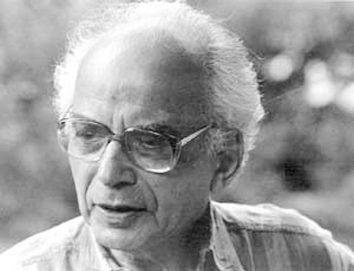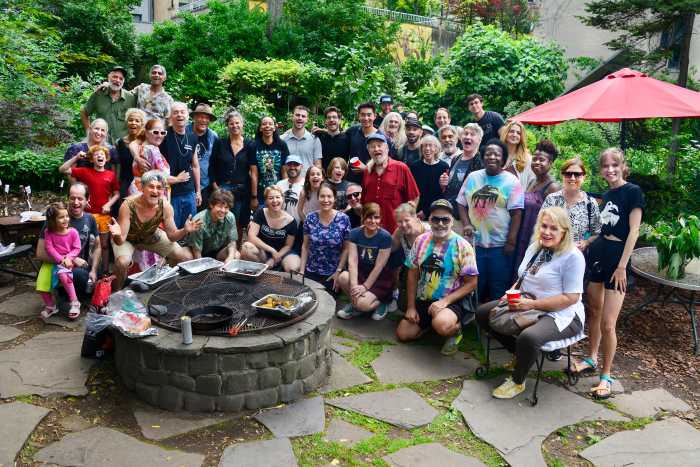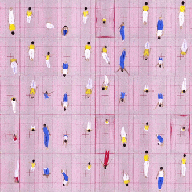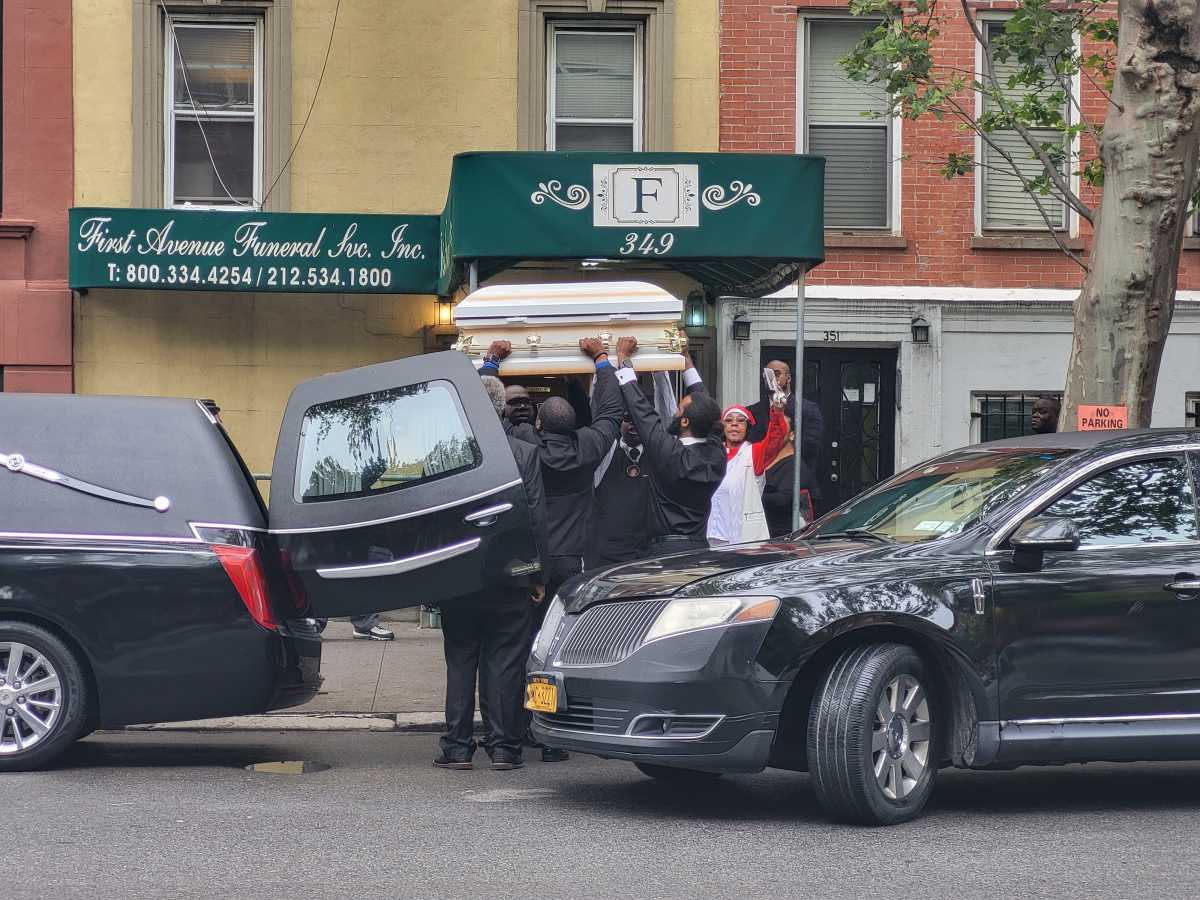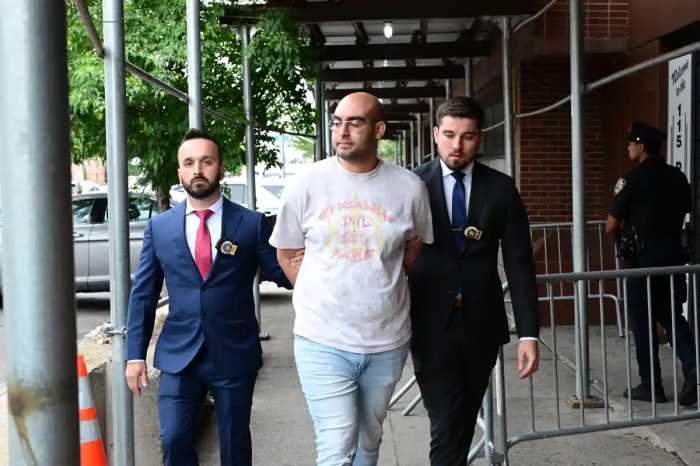By JERRY TALLMER
George Perle, renowned composer, will have his work feted at Lincoln Center
George Perle, one of this country’s most distinguished 20th century composers, was born May 6, 1915, in Bayonne, New Jersey.
A few nights ago in the Upper West Side apartment he and his wife share, not too far from West 67th Street’s Merkin Hall, where on February 7 the Da Capo Chamber Player will pre-celebrate his 90th birthday, he was spurred into a discussion of the meaning of music, particularly for people for whom a printed page of notes on a staff is like a printed page of Cuneiform.
“You’re putting me on the spot,” Perle said, speaking slowly, as is his privilege. “Reading a novel is altogether different from reading a newspaper, but it’s all language. If you go to a concert, you have some kind of reaction to it. If the newspaper is Chinese, you can’t understand it. But if you hear something by a Chinese composer, if it’s playful, for instance, you understand
“There are all sorts of aspects of life that we deal with, even if we don’t understand it. You guess at what something means,” he said.
Tchaikovsky’s “1812 Overture” has to do with the defeat of Napoleon. That’s a clear enough meaning. But except for specifics like that, are we expected to know what a piece of music means, or is that irrelevant?
“No,” said Perle. “Good question.”
His wife, pianist and music teacher Shirley Rhoads Perle, spoke up.
“Frequently,” she said, “even gifted students with good ears have found it difficult to read notes.”
“I never had trouble reading notes,” the composer murmured.
Mr. Perle was asked whether his music is abstract.
“No more abstract than Mendelsohn’s music.”
“Why do you say Mendelsohn?” enjoined his wife.
“It could have been anybody,” he grunted. After a moment: “I remember when I first understood the meaning of music. I remember the precise instant.
“Before that, I had listened to music but nobody but myself knew I listened to music.”
You were a little kid?
“A little kid, seven years old. It was an absolutely overwhelming moment. A totally ecstatic experience. I remember standing there and wondering what the hell was happening.
“I was having a piano lesson. The pianist was my father’s niece, Esther Vieland, who had come from Russia. My father didn’t know about music. He was a housepainter by trade, but he used to sing a lot and had a natural passion for music. He bought a piano for his niece to play, and for me to learn how to play.”
Was this in New Jersey?
The 89-year-old strained to remember. “Might have been Chicago”––to which the family moved when he was still that little kid, and where Perle would subsequently have a classmate at John Marshall High School named Saul Bellow.
“My recollection of that experience”—the moment of epiphany––“is that the piano was there, and Esther was playing. Not bad,” he said, with a hidden smile, of his powers of recall, “when you’re approaching 90.”
Remember the piece that so affected you?
“Yes, exactly. Chopin’s “Prelude in F minor.” One of his three posthumous preludes. A very distinct, beautiful melody.”
Would you sing it for me, Mr. Perle?
“Can’t sing it. I’m a terrible singer.”
But he started, anyway, to hum it half under his breath. His wife picked him up and sang the first few phrases of it, lightly.
“A real herky-jerky piece,” she said. “The left hand going in one direction, the right hand going in another.”
You two people are well matched, the visiting scribe offered.
“I’m lucky she’s here,” Mr. Perle said. He didn’t mean just to sing Chopin’s “Prelude in F minor.”
They’ve known each other since 1946, the year Perle came to New York from Chicago. She’d come to New York from Philadelphia.
“I was living here with my first husband,” she said. “George was part of a little clutch of Chicago composers living in New York––Ben Webster, Ned Rorem, Seymour Barab. Paul Goodman”––the Chicago-bred writer and educational revolutionist––“was also here.”
Shirley Rhoads and George Perle each had two grown children by the time they married in 1982.
Lifting his hands off his lap in a gesture almost of sowing grain, the composer suddenly said, “I remember discovering that music talks, music communicates. I can remember why. One of the little pieces I would play was a folk song. As I was playing, I noticed something. When you got to the middle of the song, the music stopped, because there was a cadence.”
A cadence is like a comma, Mrs. Perle explained to the simple-minded musical illiterate.
“Like a semi-colon,” her husband emended. “A semi-colon is the idea. Something that gives you a connection to life.
“I remember saying to myself: When the music stops here, in the middle of the piece, it’s asking a question. When it stops again at the end of the piece, it answers the question. Music is absolutely wonderful. With no words at all, I became a composer.”
At seven years old?
“Yes. And my teacher, Esther, my father’s niece, didn’t understand the questions I was asking. She didn’t understand she was talking to somebody who was already a composer in terms of my sense of life. She said: ‘People don’t do that any more. All the music’s already been written by people who are dead.’”
When had that seven-year-old boy first actually written notes?
“Right away. Nobody knew what I was writing. My mother was very sympathetic. With my first composition, I showed her what I was writing. She said: ‘Oh, how nice! Copy it out and we’ll give it to your kindergarten teacher as a present.’”
What were your parents’ names?
A long pause. You might say, an embarrassed pause, almost as if the 89-year-old Pulitzer Prize and MacArthur Fellowship winner were blushing. Finally: “My father was named Joseph and my mother was named Mary.”
Do you write music every day of your life?
“Yeah. If you’re a musician at all, music is running through your head all the time.”
Does it ever clash with other music already in your head?
“All the time.”
And you’ve also had to battle convention all the time, no?
“It happens commonly. Happens all the time.” Pause. “It’s not necessarily a bad thing.”
Does it make you better?
The hands came up off the lap again.
“I guess it makes you… more interesting.”
So interesting that on June 7 there will be an all-Perle concert at the same Merkin Hall, preceded by one in May at Princeton, and that a major retrospective CD or several CDs of his work will come out soon from Bridge Records.
The composer is also a no less distinguished writer of books, including “Serial Composition and Atonality,” “The Operas of Alban Berg,” “The Listening Composer” and “The Right Notes.” The same man who wrote those books is also a lover of jazz, in particular, of Billie Holiday, Mel Torme and Louis Armstrong.
He once went backstage to meet Armstrong after a concert.
“Told him: ‘I have a record of yours, “I Come From a Musical Family.”’ Armstrong said: ‘You and I are the only two people who know that piece.’” Pause, pause. “I made that up,” said George Perle. Pause, pause. “He might have said it.”
Now that’s serial composition for you.
thevillager.com



